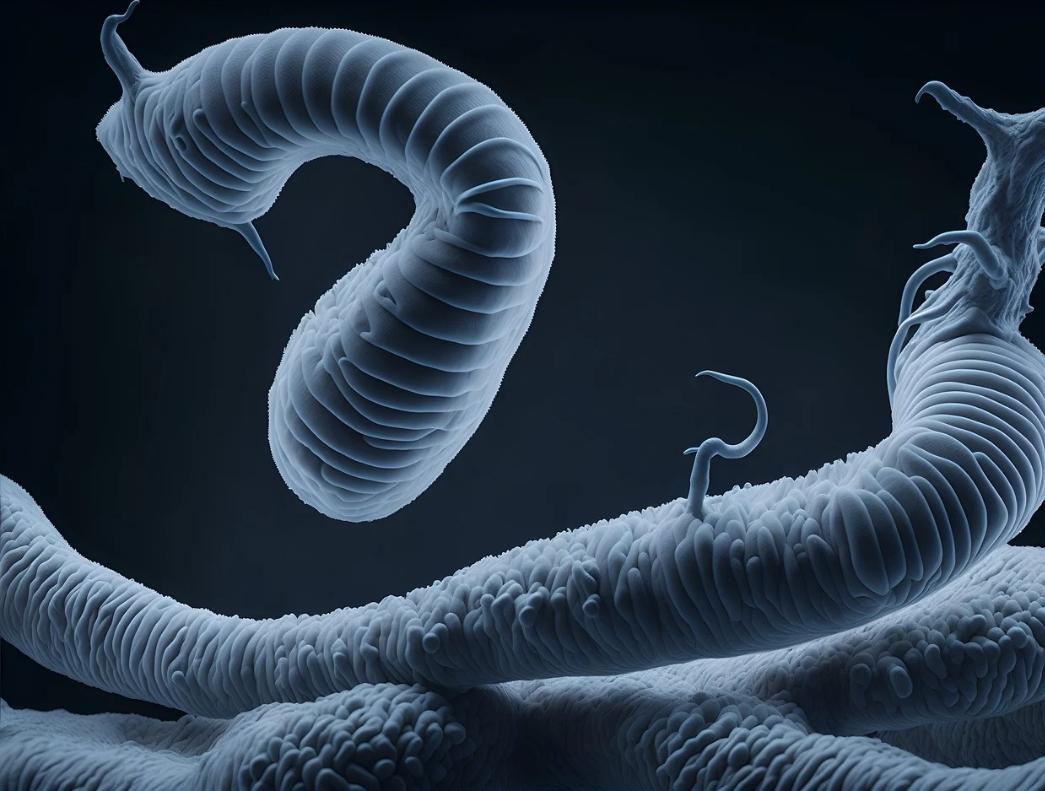There are worms that are parasitic in nature that live in humans and other creatures, depending on them for nutrients to survive. Examples of these worms are roundworms, tapeworms, and flukes. These worms can get into the human body through ingestion of contaminated food, water, soil, or through insect bites, which can lead to problems like malnutrition, anemia, and stunted growth in kids.
That’s why the concept of deworming is essential. Deworming means taking medicine to get rid of these worms from the body. The medicines, called anthelmintics, either kill or remove the worms. Then the body can expel them through natural processes like bowel movements. In this article, we’re going to look at the essence and timing of deworming.

How Parasitic Worms Affect the Body
As mentioned earlier, parasitic worms can get into the body through contaminated food, water, soil, or insect bites where you might accidentally eat worm eggs or larvae. Once these work eggs or larvae are inside the human body, the eggs hatch or the larvae grow into adult worms. Different worms target different parts of your body. Some stay in your intestines like roundworms, tapeworms, hookworms, and schistosomiasis, while others such as liver flukes might move to other organs.
These adult worms feed on the nutrients from the food you eat; meaning you get fewer nutrients even after consuming a variety of food, which can make you feel weak and sick. As they move and grow, worms can damage the tissues and organs they’re in. For example, some of these worms can burrow into the walls of your intestines, causing bleeding and pain. The worms release eggs, waste products, and toxins that can irritate your body.
Common Symptoms of Worm Infestation
If you have a worm infestation, you might experience the following symptoms:
- Stomach pain
- Diarrhea or constipation
- Nausea and vomiting
- Feeling really tired and weak
- Losing weight without trying
- Itchy bottom or skin rashes
- Seeing worms in your poop
What Are The Impact of Worm Infestation?
For kids, having worms can be particularly harmful. Worms can cause malnutrition by taking the nutrients kids need to grow properly, leading to stunted growth. Worms can also cause anemia, making kids feel tired and weak, which can affect their learning and school performance.
Deworming is a medical approach to combat these worms by taking medicine to get rid of worms and prevent their negative effects. Deworming should be done often, especially if you live in an environment where worm infestations are common.
What Is The Best Time To Deworm?
Most people deworm once every 6 to 12 months, therefore there is a typical pattern. This helps to keep worm infestations in check. If you’re pregnant or breastfeeding, you should be careful when deworming. Some medications are safe to use during pregnancy, particularly in the later stages, but always speak to a doctor first.
Furthermore, young kids usually start deworming around ages 1 to 2, depending on the risk in their area. School-aged children are frequently dewormed as part of school health programs, especially in areas where worm diseases are prevalent. This is normally done every 6 to 12 months to keep them healthy and to help them grow and learn better.
Bottom Line
Deworming on a regular basis is necessary to avoid parasitic worm-related health concerns such as malnutrition and anemia. However, you need to talk to a doctor or pharmacist to figure out the right deworming schedule for you or your family.

















